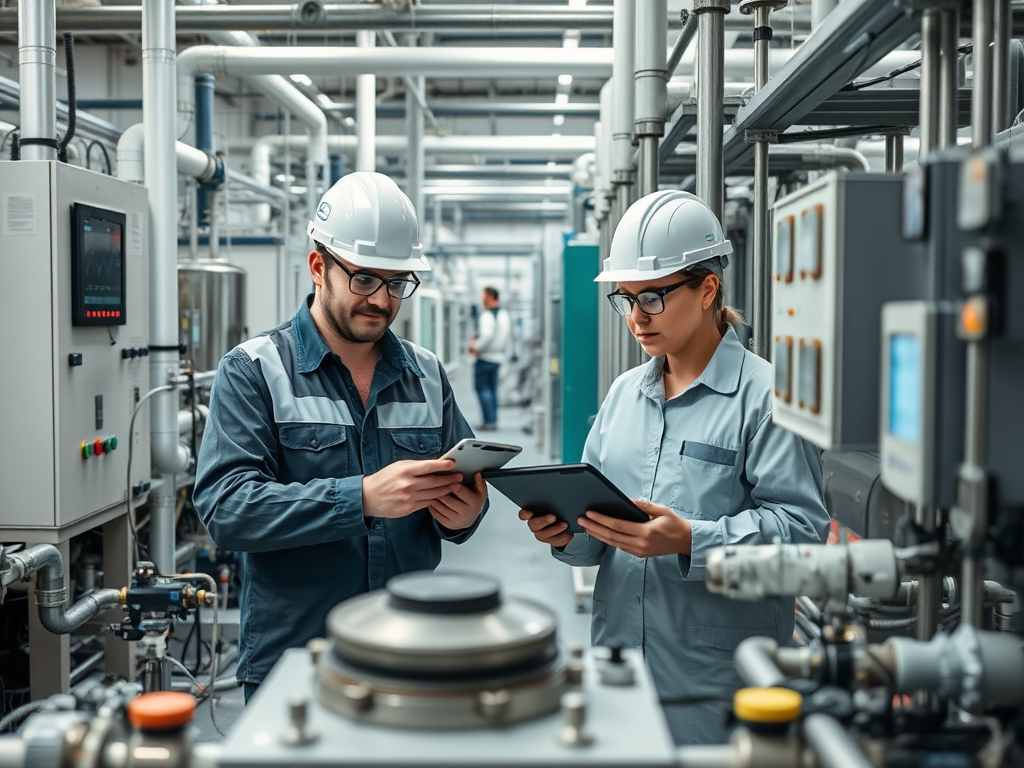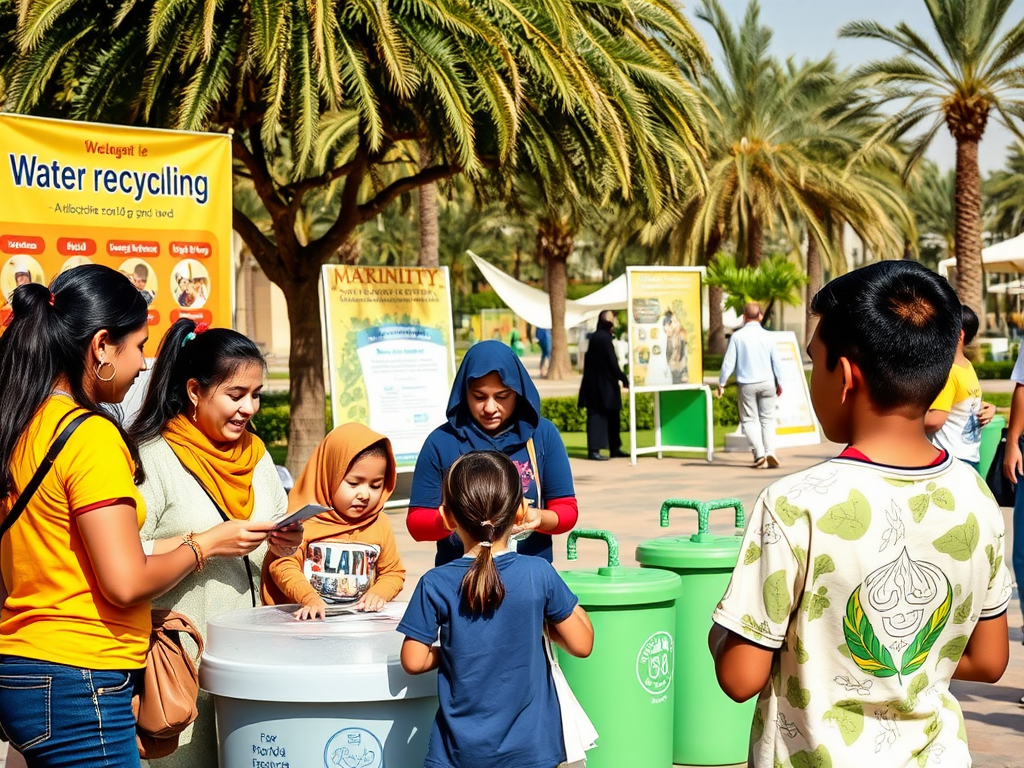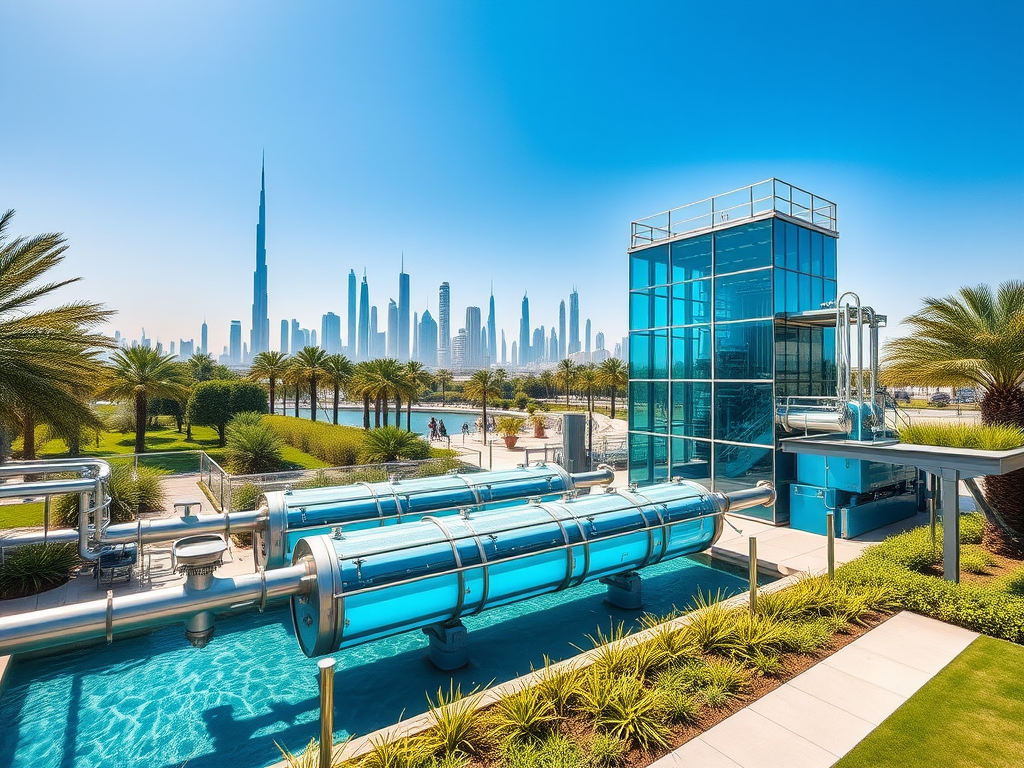As the global demand for sustainable practices escalates, Dubai has emerged as a forerunner in innovative water recycling projects. This article delves into current investment trends within this sector, highlighting how both local and international stakeholders are prioritizing sustainability efforts to address water scarcity and environmental challenges. With a strategic focus on enhancing recycling technologies, Dubai aims to optimize water resources for both residential and industrial uses. Investment in these projects reflects an understanding of the necessity for efficient water management to support the city’s ongoing growth. Through a blend of public and private funding, Dubai’s water recycling landscape is poised for substantial evolution and improvement.
Understanding the Importance of Water Recycling

Water recycling is not merely an environmental obligation; it is a crucial component of any water-stressed region’s strategy for sustainable development. In Dubai, where water scarcity is a pressing concern due to its arid climate, adopting innovative water recycling practices is imperative. The city’s current investments reflect recognition of several key benefits:
- Resource Management: Efficient water recycling helps to preserve precious freshwater resources.
- Cost Savings: Reduced reliance on desalination and underground aquifers results in lower operational costs.
- Environmental Impact: Minimizing wastewater discharge into natural systems enhances local ecosystems.
- Energy Efficiency: Integrated recycling systems can operate using renewable energy sources, reducing carbon footprints.
- Economic Growth: Investment in water recycling technologies stimulates job creation and innovation.
Key Investment Areas in Water Recycling Projects

Dubai’s water recycling investments are not one-dimensional; they span various strategic areas designed to enhance water reuse capabilities. Some of the critical investment areas include:
- Advanced Treatment Technologies: Investments in cutting-edge filtration and purification systems to ensure high-quality recycled water.
- Infrastructure Development: Building and upgrading pipelines, treatment plants, and distribution networks for efficient water delivery.
- Research and Development: Funding of innovative practices and solutions that drive efficiency and effectiveness in recycling processes.
- Public-Private Partnerships: Collaborative projects between governmental bodies and private investors to share resources and expertise.
- Community Education Programs: Initiatives aimed at promoting water conservation and the benefits of recycling to the general public.
The global nature of water scarcity has prompted Dubai to seek international partnerships for knowledge and financial resources. Through collaborating with countries known for their advanced water management practices, Dubai taps into a wealth of experience and technology that enhances local projects. Countries such as Singapore and Israel have set examples in water recycling, and their methodologies are being studied and adapted in Dubai’s context. These international collaborations also entice foreign investments, as investor confidence grows in the potential returns from innovative sustainable projects. Additionally, aligning with global sustainability goals further strengthens Dubai’s position as a leader in water management.
Future Prospects and Developments
As Dubai continues its trajectory towards becoming a sustainable city, investment in water recycling projects is expected to grow exponentially. With the UAE government’s commitment to sustainability outlined in Vision 2021, we anticipate several advancements, including:
- Increased Investment Volume: Both domestic and international financial commitments are projected to rise significantly, driven by policy incentives.
- Technological Innovations: The integration of smart technologies and IoT in wastewater management systems to enhance monitoring and efficiency.
- Regulatory Framework Enhancements: Streamlined regulations to facilitate easier investment processes and encourage innovation.
- Public Awareness Campaigns: Heightened efforts to educate the public on the importance of water recycling in achieving sustainability goals.
- Global Leadership in Sustainability: Dubai aims to position itself as a benchmark for other cities aimed at water security and recycling.
Conclusion
Investment trends in Dubai’s water recycling projects are a clear reflection of the city’s commitment to addressing water scarcity and promoting sustainable practices. With a multifaceted approach combining technology, infrastructure, and collaboration, Dubai is well on its way to developing a robust recycling framework that not only conserves precious water resources but also stimulates economic growth. As these projects evolve, they present numerous opportunities for investors to engage in meaningful initiatives that benefit both the environment and the economy.
Frequently Asked Questions
1. Why is water recycling important in Dubai?
Water recycling is crucial in Dubai due to its arid climate and limited water resources. It helps conserve freshwater, reduce operational costs, and minimize environmental impacts.
2. What are some key areas of investment in water recycling?
Key investment areas include advanced treatment technologies, infrastructure development, research and development, public-private partnerships, and community education programs.
3. How does international collaboration benefit Dubai’s water recycling projects?
International collaboration allows Dubai to learn from other countries’ experiences, adopt advanced technologies, and attract foreign investments to enhance local water recycling efforts.
4. What future developments can we expect in Dubai’s water recycling sector?
Future developments may include increased investment volume, technological innovations, enhancements in regulatory frameworks, public awareness campaigns, and establishing global leadership in sustainability practices.
5. How can individuals contribute to water recycling efforts in Dubai?
Individuals can contribute by participating in community education programs, practicing water conservation at home, and supporting initiatives that promote sustainable water use.
